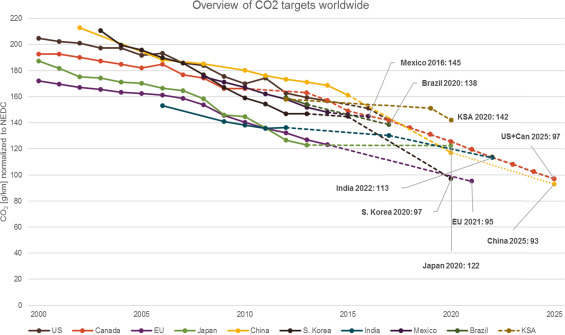

**European Regulators Provide Automakers Extra Time to Comply with Emissions Regulations**
*Brussels, [Date]* — In a notable change in policy, European regulators have decided to prolong the timeframe for car manufacturers to meet rigorous new emissions regulations. This announcement by the European Commission earlier this week indicates rising concerns regarding the automotive sector’s capability to reach ambitious environmental objectives in the face of economic difficulties and technological limitations.
### Context: Europe’s Emissions Ambitions
The European Union (EU) has been a pioneer in environmental regulation globally, specifically in transportation, which contributes nearly 25% of the bloc’s greenhouse gas emissions. As part of the European Green Deal and the Fit for 55 initiative, the EU has laid out bold targets to cut carbon emissions by at least 55% by 2030 compared to 1990 figures, ultimately aiming for climate neutrality by 2050.
To achieve these aims, the EU introduced the Euro 7 emissions standard, originally set to take effect in 2025. This standard is intended to impose stricter limits on pollutants such as nitrogen oxides (NOx), carbon monoxide (CO), and particulate matter, and to establish new testing methods that accurately reflect real-world driving conditions.
### Industry Concerns and Economic Challenges
Automakers throughout Europe have raised alarms about the practicality of meeting the new standards within the originally established timeframe. Industry representatives claim that transitioning to cleaner technologies, especially electric vehicles (EVs), necessitates significant investment in research, development, and manufacturing capabilities.
The COVID-19 pandemic, coupled with supply chain disruptions and the ongoing energy crisis intensified by geopolitical tensions, has placed additional pressure on the automotive industry. Rising costs of raw materials, semiconductor shortages, and inflationary pressures have further complicated manufacturers’ ability to invest in emissions compliance.
In light of these hurdles, major automotive organizations, including the European Automobile Manufacturers’ Association (ACEA), have advocated for a more realistic approach that accommodates environmental objectives alongside economic realities.
### The Revised Timeline
According to the new plan, the introduction of the Euro 7 standard will be postponed by up to two years, varying by vehicle category. Passenger cars and light commercial vehicles will now have until mid-2027 to comply, while heavy-duty vehicles, such as trucks and buses, will be allowed until 2029.
This extension aims to provide car manufacturers extra time to adjust their production operations, create compliant technologies, and facilitate the shift to electric mobility without jeopardizing financial health or job security.
European Commissioner for the Internal Market Thierry Breton highlighted that this decision does not indicate a dilution of the EU’s climate priorities. “This is not about diminishing our environmental goals,” Breton remarked. “It’s about ensuring a feasible and sustainable pathway forward for our automotive industry, which is fundamental to the European economy.”
### Responses from Stakeholders
The announcement has garnered varied responses. Industry leaders have praised the decision as a much-needed relief. “This move gives us the necessary space to innovate and invest in our future,” stated Oliver Zipse, CEO of BMW and previous ACEA president.
Conversely, environmental organizations have slammed the postponement, cautioning that it may impede progress towards the EU’s climate objectives. “Delaying stricter emissions standards sends a misleading message during a crucial period for climate action,” commented Julia Poliscanova, senior director at Transport & Environment, a Brussels-based NGO. “The longer we hesitate, the more challenging it will be to reach our 2030 goals.”
### Future Outlook
Despite the delay, the EU remains dedicated to phasing out internal combustion engine vehicles. Legislation has already been approved requiring that all new cars sold from 2035 onward be zero-emission. The extended timeframe for Euro 7 compliance is viewed as a temporary measure to bridge the divide between existing vehicle technologies and a zero-emission future.
In the interim, regulators are expected to boost investments in EV infrastructure, battery production, and renewable energy to aid in this transition. The European Investment Bank and national governments are also considering financial incentives to hasten the adoption of cleaner vehicles.
As the automotive industry adapts to this complex environment, the extended timeline offers a short-term reprieve—but the demand for innovation and decarbonization persists with unyielding intensity.
—
*By [Your Name], European Automotive Correspondent*






